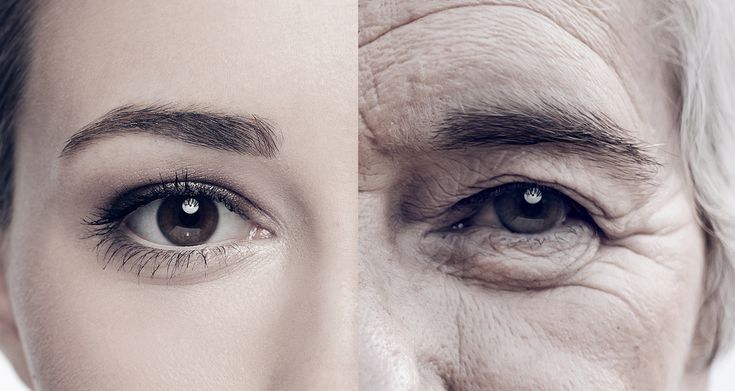
Nathalie Picquaert — The Secret to Timeless Skin
We sat down with the founder of Anadrea and Biologique Recherche expert who left us speechless with her porcelain skin and ageless beauty.

Reflections from Research and Observation
At Depuravita, we are constantly exploring the intersection of science and well-being, especially in the research and development of supplements that support cellular health. Our team has been closely examining the long-term effects of COVID-19, particularly its influence on biological aging. One striking observation emerged while reviewing photo documentation from 2020 — the visible signs of accelerated aging in many individuals were hard to ignore. Subtle yet impactful changes in appearance and energy raised important questions: was this purely stress-related, or was there an underlying biological shift triggered by the virus? This curiosity fueled our research into the molecular effects of COVID-19 and the emerging science around it.
Aging is traditionally measured in chronological years, but biological aging refers to how old our cells and tissues appear based on molecular markers. One of the key ways to measure this is through epigenetic clocks, which assess changes in DNA methylation patterns. Another critical indicator is telomere length. Telomeres are protective caps at the ends of chromosomes that naturally shorten as we age, but stress, illness, and environmental factors can accelerate their attrition.

In this comprehensive study, researchers analyzed DNA methylation and telomere length in 645 individuals, including 232 healthy controls and 413 COVID-19 patients. The objective was to determine whether COVID-19 infection is associated with accelerated biological aging.
The study found that COVID-19 patients showed significant acceleration in epigenetic aging compared to healthy individuals. This means their cellular markers suggested they were older than their chronological age. Notably, this acceleration was more pronounced in patients with severe disease, indicating a correlation between the severity of COVID-19 and the rate of biological aging.
Beyond changes in DNA methylation, COVID-19 patients also experienced accelerated telomere shortening, further validating the premise of rapid biological aging induced by the virus. Telomeres naturally shrink over time, but the stress of infection seems to hasten this process.
One hopeful insight from the study is that epigenetic age acceleration may be reversible. Longitudinal analysis showed that some patients experienced partial recovery in their epigenetic markers over time, especially as they moved from acute illness into convalescence. However, the extent and consistency of this recovery remain unclear, warranting further research.
The exact biological mechanisms by which SARS-CoV-2 accelerates aging are still being studied, but researchers hypothesize several contributing factors:
Many individuals who recover from COVID-19 report lingering symptoms known as Long COVID. Fatigue, brain fog, joint pain, and other chronic issues are common. Accelerated biological aging could be a key driver behind these symptoms, especially if cellular health is compromised.
Moreover, if COVID-19 indeed accelerates aging, it could have significant implications for the onset of age-related diseases like cardiovascular disorders, neurodegenerative conditions, and metabolic syndromes.
Shield your vitality. Support your cells. Absolute Shield is crafted with adaptogens and botanicals like Shilajit, Astragalus, and Eleuthero to support cellular resilience. Designed to help your body navigate modern stressors, this potent blend aligns with the needs of today’s wellness seekers—offering daily support for energy and balance from within.





While reversing aging entirely is not yet possible, there are science-backed strategies and supplements that may help support cellular health, potentially mitigating the effects of biological aging post-COVID.
Oxidative stress plays a significant role in aging. Antioxidants help neutralize free radicals and support cellular repair.
Adaptogens help the body manage stress and reduce inflammation.
Healthy mitochondria are essential for energy and cellular health.
While more research is needed, certain nutrients may help maintain telomere length.
A healthy gut microbiome supports immune function and reduces systemic inflammation.
In addition to supplements, lifestyle modifications can play a crucial role in supporting recovery and reducing biological aging:
As we continue to study the long-term effects of COVID-19, it's essential for individuals to monitor their health and consider strategies that support cellular resilience. The field of epigenetics and longevity science is rapidly evolving, offering promising tools to assess and mitigate biological aging.
Blood tests and biological age calculators that analyze DNA methylation patterns are becoming more accessible, providing personalized insights. Individuals recovering from COVID-19 or experiencing Long COVID symptoms may benefit from such assessments, in consultation with healthcare professionals.
The impact of COVID-19 extends far beyond its initial infection. As we mark five years since the pandemic began, evidence indicates that SARS-CoV-2 may accelerate biological aging, particularly in those who experienced severe illness. Understanding this process empowers us to take proactive steps through targeted supplementation, lifestyle choices, and ongoing monitoring. While we cannot stop time, supporting our cellular health may help us age with resilience and vitality, even in the post-COVID era.